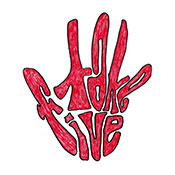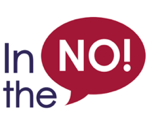Parents
Love this program! Thank you for caring about the children today and bringing this to many schools
Parent, Beechwood HS
What to Expect on Test Day
Here’s everything you need to know about Test Day:
- Applications are completed by parents & students, and turned into the front office.
- On test day students are called to the front office, where they are told it is Drug Free Clubs test day and they are told where to go for testing.
- The student arrives at the testing area, signs in, and is handed their application back (it has the parent’s signature as a consent to do the test that the collectors will need to see).
- The applicant sits down at computers or tablets to create their online DFCA account and take an anonymous survey.
- Photo taking is the next station, where the student’s picture is taken and gets linked to the account just created.
- On to the bathroom. Students show their signed application to the collector, and go in the bathroom alone. After filling a sample cup ½ way, they leave their sample in the restroom and come out to let the collector know they are finished.
- The collector completes a medical form with the student, and gives them a hall pass. There is no indication of any test result and the collector does NOT need to be told about any prescriptions.
- Students end their test day at a goodie bag station, filling a lunch bag with treats. Schools are highly encouraged to allow students to eat their treats in class in front of the other students. That way, fellow students know this person was just tested so it’s not even worth trying to offer any substances.
- Parents are contacted regarding any samples where the lab confirms the presence of substances. Prescriptions are verified and/or conversations are held about what was present.
- In about a month ID cards arrive at school welcoming students into the club who passed their drug test and rewards begin! Parents also receive letters at home congratulating them on their child’s acceptance, and urging them to talk to their teen about their DFCA membership.
My Child Takes a Prescription Medication
With the exception of 1 pilot program, Students participating in Drug Free Clubs of America who are taking a prescription(s) will NOT be asked to provide the details of their medication at the time of testing nor to give them to the school. We (or our doctor’s office) also will not contact the school to ask them to reveal your child’s medical information. Any of these touch upon your child’s medical privacy, so we leave those decisions up to you. The standard form signed by parents and students when they apply for the program only consents for the results to be released to DFCA and the parent. Communication with the school about medication details would not be covered by that consent. Think of our process more like what your child might experience someday for a job.
How does it work? As a part of a very standard practice called “confirmation”, we work with a doctor called a Medical Review Officer, from St. Elizabeth Healthcare, who has additional training in drug testing. We are very grateful for St. Elizabeth’s support of our program which you can read more about here. If any substance is found in a urine sample, parents are simply contacted by DFCA or the doctor’s office for documentation of a prescription related to the substance found. No information needs to be revealed other than that related to what is detected. As you can imagine, the drug testing field is highly regulated. Most guidelines for confirmation are set forth by the Department of Transportation which we, and our MRO office follow as best-practice. A good confirmation process is the mark of a high quality testing program.
Why do we need to document a prescription? Medications prescribed for some students could also be abused by others. When a substance shows up in a urine sample the MRO just needs to match the substance with a doctor’s orders. Then there can be a drug-free result concluded. Some students may not want to give that information to the school, or to be required to produce it on test day, so we don’t ask them to. Going back to recommendations laid out by the Department of Transportation, unfortunately, the days of verbal promises are over. Documentation is necessary but don’t worry. There are no forms to fill out and you probably already have what you need…
What will I need to show? Confirming your child’s prescription information is easy. There are only 3 facts to find together: the patient’s name, the medication’s name, and the date the prescription was filled. This is usually printed on prescription bottle label, or the purchase receipt. If it is, you just take a picture and email it to a secure email address you will be given when it’s needed. As an option you can choose to fax it, or put it in the physical mail. Your pharmacy can also give you a paper with that information if needed. When the MRO gets the documentation, it will be “confirmed” as a match to the sample, and the report will verify that your child is drug-free so he or she may become an active DFCA member!
“Take 5”
 Take 5 is inspired by evidence showing that youth are up to 50 percent less likely to use drugs when parents and adults talk with them about substance use and abuse. DFCA realized that not only do we have key contact information for engaged parents who signed their child up for the program, we also have ideal moments to spark a conversation between parent and child.
Take 5 is inspired by evidence showing that youth are up to 50 percent less likely to use drugs when parents and adults talk with them about substance use and abuse. DFCA realized that not only do we have key contact information for engaged parents who signed their child up for the program, we also have ideal moments to spark a conversation between parent and child.
Parents are notified 5 times throughout the year about key opportunities to open the lines of communication with their child on the topic of drugs and alcohol. These are naturally occurring events throughout the program year, like drug test day, where it is super simple to bring up the subject. No accusations, no awkwardness. Just, “Hey, I got this message today that they did drug testing at school. How was it? Who else did you see there? Do you think you’ll use this if you need it? I want you to know that I am so proud of your choice to join.”
In the “NO”
 In the “NO” is the educational component of the Drug Free Clubs of America strategy. It is a campaign for members and parents to learn more about many different drug-related themes. Having a better understanding on these matters helps teens to feel even more secure in making healthy decisions for themselves, and gives them the facts they may need to inspire others to make the same choice. Armed with this knowledge, teens are more likely to continue with their drug free lifestyles even when they are no longer being drug tested. Parents are included in this component to dispel myths, highlight differences from what they may have known about drugs in their own youth, and to help them keep an open dialogue with their child on substance related issues. If there is a drug or alcohol related topic you would like to know more about, please let us know here.
In the “NO” is the educational component of the Drug Free Clubs of America strategy. It is a campaign for members and parents to learn more about many different drug-related themes. Having a better understanding on these matters helps teens to feel even more secure in making healthy decisions for themselves, and gives them the facts they may need to inspire others to make the same choice. Armed with this knowledge, teens are more likely to continue with their drug free lifestyles even when they are no longer being drug tested. Parents are included in this component to dispel myths, highlight differences from what they may have known about drugs in their own youth, and to help them keep an open dialogue with their child on substance related issues. If there is a drug or alcohol related topic you would like to know more about, please let us know here.
Parent Resource
 St. Elizabeth Healthcare in northern Kentucky generously donates the time of one of their top substance abuse professionals, Dave Welscher, to be able to serve as DFCA’s “parent resource.”
St. Elizabeth Healthcare in northern Kentucky generously donates the time of one of their top substance abuse professionals, Dave Welscher, to be able to serve as DFCA’s “parent resource.”
Dave is a graduate of the University of Cincinnati where he earned his master’s degree in counseling. He is a Licensed Professional Clinical Counselor in the State of Kentucky and a Professional Clinical Counselor in the State of Ohio. If at any time you have concerns about your child’s use or abuse of drugs or alcohol, call Dave. This is not a referral, a case will not be opened, and it is free. He is simply volunteering his time and talents as DFCA’s Parent Resource so that parents have someone contact if they ever have concerns, and do not know what to do.
Conversation Tips
As a DFCA parent you know that an ongoing dialogue with your child about substance abuse can reduce his or her risk of using by almost HALF.
DO…
- Remember that this is about your child’s heath and well- being. It is not about bad behavior or punishments. “I am worried that this has become a pattern and will lead to you being unable to participate on the team”
- Come from a place of love and concern, not anger. “Honey, I am concerned about your choices lately and how they may affect you.”
- Be direct. Teens have a hard time grasping the abstract. “I can smell marijuana on you!” “Your breath smells of alcohol!”
- Withhold judgment so that your teen feels he/she can tell you the truth. “Only losers smoke pot” sounds judgmental and leads to defensiveness. “So you said the events of the night happened in this manner…” comes across as less judgmental. Stick to factual or reported information without using derogatory references or name calling.
- Remain calm. If you start yelling, you’ll give your child a reason to leave the room or end the conversation. “I need to take a 5-minute break before we continue this conversation.”
- Emphasize the importance of honesty. “I intend to do what it takes to find out the truth. This is your chance to come clean and save yourself from embarrassment when I start questioning your friends and their parents about this story.”
- Focus on the behavior, not the person. “This choice concerns me” “This situation is alarming” as opposed to “What were you thinking?!!!”
DON’T…
- Get defensive when your teen makes a remark that feels like a personal attack — use it as a discussion point instead. Instead of starting the sentence with “you”, consider saying something like “I am angry that” … or “Yes, I am upset about this!”
- Just take what your child says at face value – listen to your child’s tone of voice, pay attention to his/her facial expressions and body language and word choices. “I need the names and numbers of everyone involved as I intend to fact check the situation.”
- Avoid allowing your teen to confuse you with his/her remarks or questions. If you do not know an answer, it is appropriate to state that you will get back to him/her with a response. “I need some time to think about this; I will get back to you.”
Products
Coming soon!

